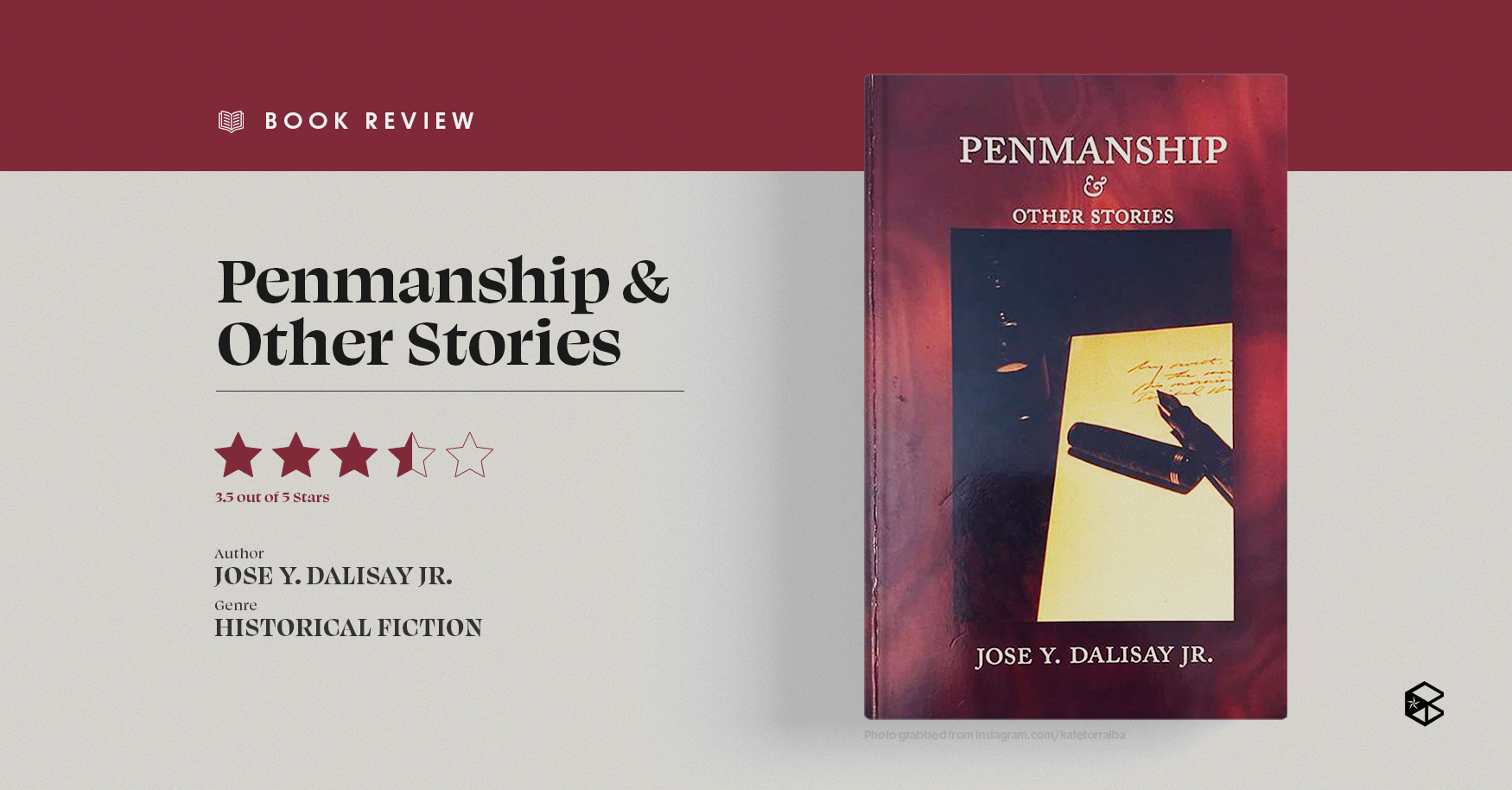Jose "Butch" Y. Dalisay Jr. adeptly explores themes of human struggle with control, moral dilemmas, and the complexities of power and love in 20th-century Manila in his collection Penmanship & Other Stories.
Dalisay has achieved remarkable success across the literary spectrum, earning numerous awards, including sixteen Palancas, for his fiction, poetry, drama, non-fiction, and screenwriting works. He was honored as one of the 100 most accomplished Filipino artists of the past century in the Cultural Center of the Philippines (CCP) Centennial Honors List, and his contributions to Filipino literature are extensive and enduring.
Penmanship & Other Stories is a collection of short stories that have previously appeared in various publications, save for Voyager, the book’s only novella, as it saw print for the first time in this book’s initial release.
With a very distinctive start, Dessert takes us into the disillusioned, well-read minds of an English literature instructor and student on a fancy dinner date and the aged attraction that was never acted upon but in fantasy. An unrequited infatuation dances around the minds of Dalisay’s male characters, as this trope is similarly encased between a doctor and an escort in Ybarra. Dalisay’s fascination with the dynamic starts to come into the light more. His approach is skillful—although the premise is provocative, the doctor’s spellbound accounts of his love make the story an intriguing, if not beguiling, read.
The vivid images Dalisay curates
We are brought to the louder, dense bustle of R. Hidalgo Street, Quiapo in Delivery. Dalisay’s visual writing makes the tale of Protacio’s altercation with his boss and the men he incriminated for his feverish loss of an important envelope abloom with the characteristics of historical downtown Manila. He is very thorough in his descriptions, whether it be the fumes of traffic, a casino and its mechanical noises, Scottish cuisine at a pub, the intricacies of an inspector’s job, or the hovering, scratching, and capping of a pen.
If not yet, At the Booklaunching begs the question of whether romance in a power imbalance is deeply personal to Dalisay. He writes very intimately, as if he has lived the exact torment of a debilitating affection for someone with not the titular identity he has. Intended or not, it is this debilitation that is constantly being written about in these stories. No two forms of it are exactly alike—it can be finding an ampule with a drug to quell anguish or not speaking of a lover beyond the poem.
It is in Except Felisa that Dalisay makes the tortured protagonist debilitated by and helpless not to a woman but to the vice of gambling. Felisa’s compulsion and desperation at the chance to usurp what she cannot control make her stand out among the other pensive protagonists. Dalisay’s protagonists are always faced with a choice—overcoming or succumbing to their weakness, and often, succumbing involves crossing a line between superior and subordinate. However, for Felisa, succumbing is a gamble between the extremes of power, wagering her almost-nothing against her opulent opponents that could leave the casino without as much a feeling of loss.
Meanwhile, set in a Georgian pub in Edinburgh, We Global Men delves into the well-traveled reflections of a Filipino engaged in global commerce. The protagonist describes home as a place he "struggled long and hard to leave," yet continually finds himself contemplating, especially when confronted with his work acquaintances' appropriated opinions on Filipinos, which evoke feelings of offense and dissatisfaction. Within this narrative framework, Dalisay explicitly addresses the profound sense of suspension caused by a history of colonization and the alienated experience of a Filipino working abroad. It's evident that Dalisay's ability to articulate these themes is deeply rooted in his own experiences and upbringing, making these stories profound extensions of his identity.
For Penmanship, it revisits the familiar power trope—this time between a senior clerk and a new secretary. Dalisay channels his well-known affinity for fountain pens and penmanship through the protagonist of this short story, reigniting the question of whether he embraced writing to articulate the waning experience of love or infatuation. What ties these stories together is not only the exploration of the raw thoughts of a man ensnared by intense attraction, but also the theme of unrequited conclusions. Dalisay adeptly undermines his characters' pedestals once again.
He evidently has a talent for repackaging this theme. In Voyager, a Spanish ex-military is tasked with assassinating a Filipino revolutionary he grows to sympathize with. There is no one that can write a more convincing, bone-chilling dilemma between a settler’s racist upbringing and the graceful conviction of his morality than a man who carries the generational wounds of these settlers’ victims. This is why Voyager significantly takes the cake.
Although Penmanship & Other Stories contains short stories that have already seen print in Dalisay’s previous publications, Voyager and the book as a whole are outstanding works that explore internal monologue and the debilitating aspects hidden beneath the highly-regarded tales of love and triumph through captivating visual writing.
You can get the book from its publisher and distributor—Anvil Publishing.


